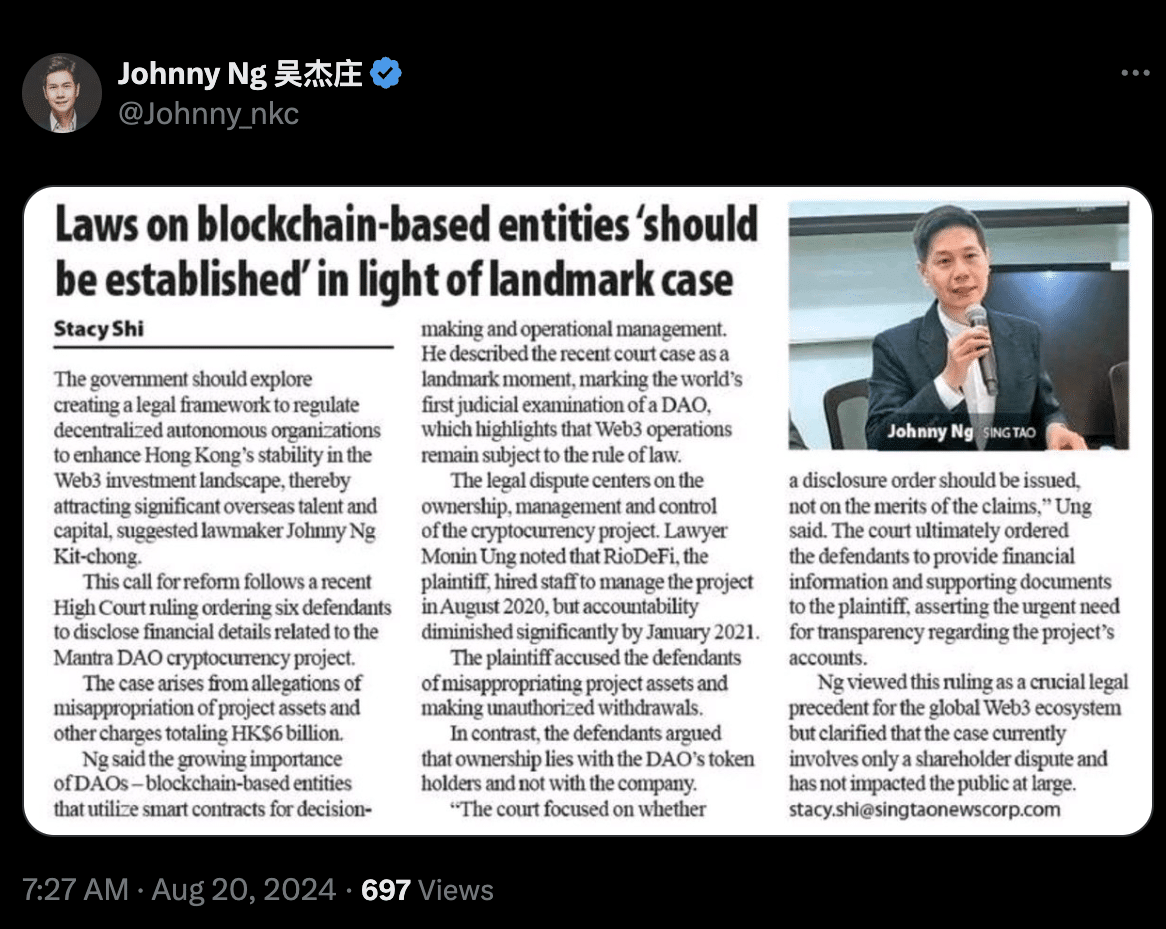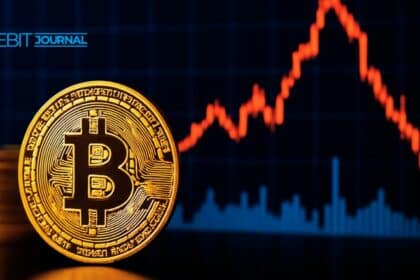In a major Asia crypto shake-up, China and Hong Kong are stepping onto the global crypto stage, each with a unique script. In China, the government is tightening the screws on virtual assets, determined to clamp down on financial crimes and exert control over the digital currency market. Meanwhile, in Hong Kong, there’s a different kind of buzz—a push to embrace the decentralized future by exploring new regulations for decentralized autonomous organizations (DAOs). These contrasting approaches reveal a region at a crossroads of a crypto shake-up, where the decisions made today could shape the future of cryptocurrency not just in Asia, but around the world.
China Revises Anti-Money Laundering Laws
China’s supreme court and public prosecutor have revised the country’s Anti-Money Laundering (AML) laws to include virtual assets for the first time. This revision, the first major update since the AML law was adopted in 2007, marks a significant step in the nation’s approach to regulating the digital currency space.
During an August 19 conference, the Supreme People’s Court and the Supreme People’s Procuratorate clarified that virtual asset transactions would now be recognized as a method of money laundering under the new interpretation of the law. This crypto shake-up means that the transfer and conversion of criminal proceeds through digital transactions will now be strictly regulated, with penalties for offenders ranging from fines of 10,000 to 200,000 Chinese yuan (approximately $1,400 to $28,000) to jail terms of five to ten years.

This change comes against a backdrop of growing concerns about the rise in money laundering activities in China, particularly those involving digital currencies. The Supreme People’s Procuratorate reported that the number of people prosecuted for money laundering has risen 20-fold since 2019, with 2,971 individuals facing charges in 2023 alone.
These developments have sparked speculation about whether China might be considering reversing its stringent stance on cryptocurrency. In July, Galaxy Digital CEO Mike Novogratz hinted at the possibility, suggesting that China could “likely unban” Bitcoin by late 2024. However, opinions remain divided, with some industry insiders, like Yifan He, CEO of Chinese blockchain firm Red Date Technology, sceptical that China would ever allow its citizens to trade Bitcoin freely using local currency.
Hong Kong’s Push for DAO Regulation
While China tightens its control, Hong Kong is taking a different approach, focusing on the potential of decentralized autonomous organizations, or DAOs. Johnny Ng, a member of the Hong Kong Legislative Council, recently urged the government to explore regulating DAOs, emphasizing the need for a legal framework to help Hong Kong become a global hub for Web3 development.
Ng’s call for regulation comes on the heels of a significant ruling by the Hong Kong High Court, which ordered defendants to disclose financial records related to a DAO project known as Mantra DAO. In this case, the plaintiffs accused the defendants of misappropriating assets, while the defendants argued that the ownership of the assets lay with the token holders.

This legal battle surrounding crypto shake-up in Asia could set a crucial precedent for the Web3 industry in Hong Kong. Mantra DAO, which had a market cap of $1.1 billion in July, has seen its value drop to around $740 million, according to DefiLlama data. The volatility in the value of such projects highlights the risks and challenges associated with these new digital structures.
Ng has been a vocal advocate for the crypto industry in Hong Kong, previously pushing for easier banking access for crypto firms. His latest call to regulate DAOs is part of a broader effort to ensure that Hong Kong’s legal infrastructure keeps pace with the rapid developments in the digital asset space. The city, which introduced a crypto licensing regime for trading platforms in June 2023, is keen to attract more crypto businesses and solidify its position as a leader in the global Web3 movement.
What Does This Asia Crypto Shake-Up Mean for Crypto World?
The crypto shake-up in China and Hong Kong in a nutshell, are a small part of the bigger picture being painted of the crypto market across Asia, where governments are increasingly looking to regulate the fast-growing digital asset industry. China’s focus remains on tightening controls to prevent illicit activities, while Hong Kong is more concerned with fostering innovation while ensuring legal accountability.
These differing approaches reflect the unique economic and political landscapes of the two regions. China, with its history of strict financial market controls, is cautiously navigating the world of digital currencies, even as rumours swirl about a potential softening of its crypto ban. In contrast, Hong Kong, known for its open financial policies, is actively working to attract global crypto players by providing a clear regulatory framework.
The Future Of Crypto In Asia
For China, the recent legal revisions signal a strong commitment to cracking down on financial crimes involving virtual assets. Whether or not this crypto shake-up leads to a broader acceptance of cryptocurrency remains to be seen. Meanwhile, Hong Kong’s push for DAO regulation could establish the city as a global Web3 hub, setting a model for other jurisdictions to balance innovation with legal oversight.
Crypto enthusiasts are eager to see what the future holds for crypto in the largest continent of the world, Asia. whether you are a crypto aficionado or just starting out, you know where to watch out.




























